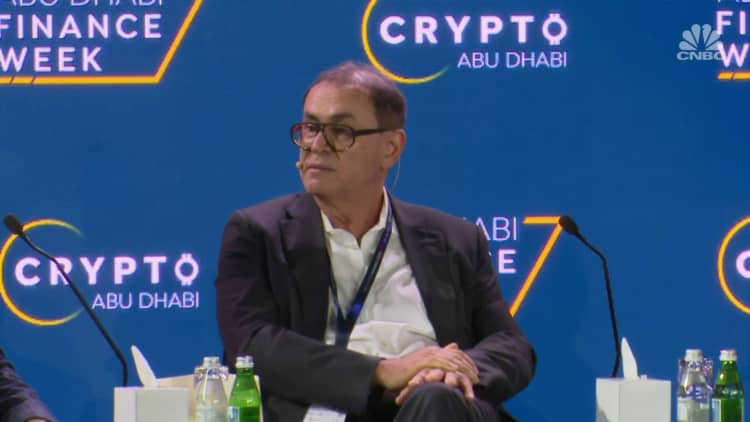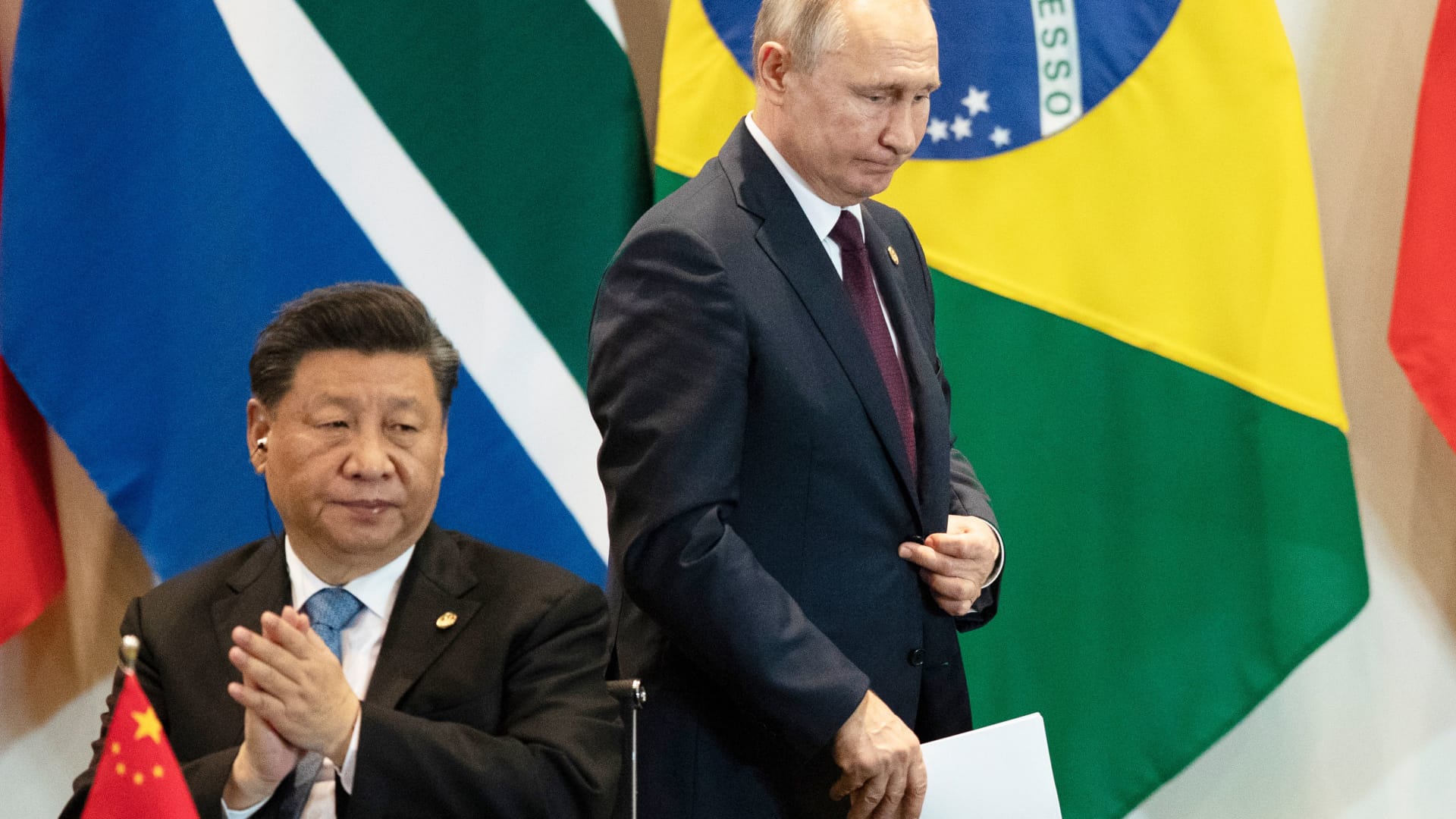Economist Nouriel Roubini slams crypto 'carnival barkers' and Binance CEO as 'a walking time bomb' after FTX disaster
The NYU professor said recent turbulence in the crypto market showed major players in the industry needed to go, and that regulators should be wary.


Outspoken economist Nouriel Roubini described crypto and some of its major players as an "ecosystem that is totally corrupt."
On a panel hosted by CNBC's Dan Murphy at the Abu Dhabi Finance Week on Wednesday, the New York University professor said there were "seven Cs of crypto": "Concealed, corrupt, crooks, criminals, con men, carnival barkers," and finally, Binance Chief Executive Changpeng Zhao, known as CZ, who spoke on a prior panel at the same conference.
"The lesson of the last few weeks is these people should be out of here," Roubini added. CNBC has contacted Binance and Changpeng Zhao for comment.
Recent turbulence in the crypto market has seen the collapse of one of the world's biggest crypto exchanges, FTX, with the revelation of highly risky and unsustainable borrowing and lending by the company and related investment funds.
The price of bitcoin has plunged below $17,000 for the first time since 2020, and some fear the contagion could spread to topple other major players, such as Crypto.com. The CEO of the company has denied this.
Binance has repeatedly centered the story around FTX, with the company initially suggesting it would buy its failing rival before pulling out of the deal.
"I can't believe that CZ and Binance have a license to operate in the UAE. He's banned in the U.K., he's under investigation by U.S. Justice Department for money laundering," said Roubini, who was nicknamed "Dr. Doom" for his prior pessimistic forecasts, including a prediction of the property market crash in 2007-2008.
Roubini continued to criticize the Binance CEO, expressing his bewilderment that "he was here on this stage and has residence in this country," referring to the United Arab Emirates. "The regulators should be thinking carefully," he said. "That's a walking time bomb."
On the same day, Binance received a Financial Services Permission from Abu Dhabi's financial services regulatory authority, the Abu Dhabi Global Market. Dubai, the UAE's commercial capital, granted the crypto exchange its green light earlier in the year, upgrading it from a provisional license to a Minimal Viable Product license in September, which allowed it to offer a variety of virtual asset services to investors.
FTX had also planned to launch operations in Dubai, receiving a partial license from the Gulf emirate in March, when it announced it would set up a regional headquarters there. The UAE has been implementing a number of reforms and frameworks to become a crypto hub, even as other countries and governments sound the alarm over the industry's risks.

In September, Reuters reported that U.S. federal prosecutors had in 2020 asked Binance for internal records about its anti-money laundering checks, along with communications involving CZ.
Countries have taken varying attitudes toward oversight of crypto firms as the industry has ballooned in size in recent years.
After stating in a July 2021 blog that he wanted to increase engagement with regulatory authorities, CZ has led Binance to approval in Dubai and Abu Dhabi, and in May won regulatory approval in France, its first major European jurisdiction. On Wednesday, it announced it had gained further approval in Abu Dhabi to provide custody services to professional clients.
However, it is banned in the U.K., has been made to limit its activities in Singapore, and operates through a spin-off company which has come under scrutiny, Binance U.S., in the U.S.
Other countries, such as India, have sought to prohibit crypto trading altogether.

Before Roubini's comments in Abu Dhabi, CZ said on a separate panel the crypto industry needed an association establishing best practices and to speak with regulators around the world.
He also said he had seen "very significant interest" in assistance for his proposal to set up a recovery fund to support crypto projects facing a liquidity crunch.
Discussing his biggest mistake, he said: "Originally I would've said we could've moved a bit faster but given what happened last week that might not have been a great idea. Doing things step by step is actually more important."
In response to a question on whether crypto needed saving, he said: "Crypto has actually shown extreme resilience ... I think the industry will be fine."
— CNBC's Hannah Ward-Glenton and Natasha Turak contributed to this report.
Correction: This story has been updated to correct a quote from Nouriel Roubini.

 ValVades
ValVades 































